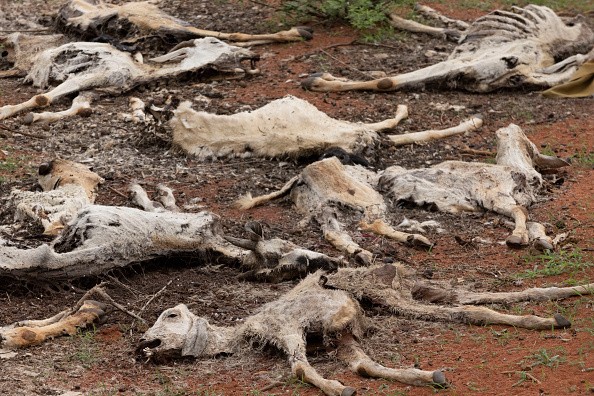Disease transmission will be complicated by climate change and harsh weather. According to a new study, temperature changes such as heatwaves can have significantly varied impacts on infection rates and illness outcomes depending on the typical background temperature.
Increase in Temperature

As global temperatures increase and extreme weather events become more common, as per Science Daily, the study shows that predicting the effects of climate change on host-pathogen interactions would become more challenging.
Human, agricultural, and animal populations are all affected by infectious illnesses, which have a significant ecological impact.
Temperature affects the interactions between infections and their hosts, widely documented. However, what is less well known is how this link is affected by rapid and significant temperature changes and how this impacts overall infection rates and illness consequences.
In a paper published on eLife, epijn Luijckx, co-first author and William C. Campbell Lecturer in Parasite Biology at Trinity College Dublin, Ireland, says that climate change will not just increase temperatures, but also the likelihood of extreme weather events.
The impact of changing temperature regimes, such as heatwaves, on host and pathogen traits remains unclear, despite research quantifying the implications of increased average temperatures on a host and pathogen features.
Impacts of Changing Temperatures
Luijckx and his colleagues looked at how changing temperatures affected the characteristics of a host organism, Daphnia magna, a tiny crustacean with a known intestinal parasite, Odospora colligata. The parasite's transmission is a famous example of how illnesses like SARS-CoV-2 and cholera are spread through the environment.
Science Foundation Ireland and the Irish Research Council provided funding for their research.
The researchers examined a constant temperature and two variable temperature regimes with daily swings of +/- 3°C and three-day heatwaves of 6°C above ambient temperature.
The lifetime, fertility, infection status, and quantity of parasite spores in the intestine of the crustacean were then measured. The data was then transformed into a statistical model that allowed them to compare the effects of the three distinct temperature regimes.
Compared to those kept at a steady average temperature, the study discovered that daily temperature changes lowered the parasite's infectivity and spore burden. The infectivity of parasites following a heatwave, on the other hand, was nearly identical to that of those kept at a steady temperature.
Furthermore, while the constant background temperature was 16°C, the number of spores in the crustacean host rose, but this load was decreased at higher temperatures. This shows that the consequences of temperature change vary depending on whether the parasite's optimal temperature is near to the average background temperature or not.
When the crustacean was exposed to the parasite spores or was subjected to varying temperatures, the host's fitness and reproductive success were frequently lowered. The differences in host and pathogen responses imply that the parasites could resist the rapid shift in temperature better than their hosts in certain cases.
Conclusion

As a result, shifting patterns of climatic variance, along with changes in mean temperatures caused by global warming, might have far-reaching and unforeseen consequences for disease dynamics.
With Pepijn Luijckx as a co-first author, the study team also comprises co-first authors Andrew Jackson and Ian Donohue (Carl von Ossietzky University of Oldenburg, Germany) and co-first author Charlotte Kunze (Trinity College Dublin) (both Trinity College Dublin).
For similar news, don't forget to follow Nature World News!
© 2026 NatureWorldNews.com All rights reserved. Do not reproduce without permission.





